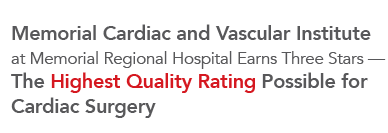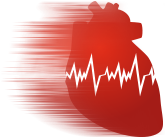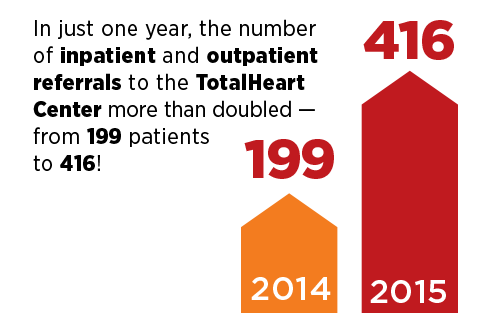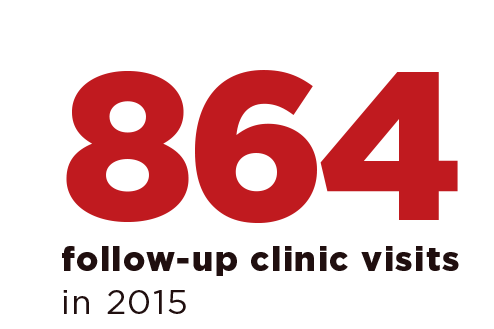Memorial Cardiac and Vascular Institute: Leaders in Care, Leaders in Volume
Memorial Cardiac and Vascular Institute at Memorial Regional Hospital and Memorial Hospital West has seen another year of significant accomplishment and growth.
The Institute is the volume leader for both interventional cardiology and cardiac surgery cases in Broward County. This year, we treated more than 12,000 patients, performing:
- More than 4,500 diagnostic cardiac catheterizations
- More than 1,700 percutaneous coronary interventions (PCIs)
- 50 transcatheter aortic valve replacements (TAVRs)
- 600 cardiac surgeries, including transplants
To date, Memorial Cardiac and Vascular Institute has performed 14 adult heart transplants and has earned CMS certification of its adult heart transplant program.



We are now 37 physicians strong, including:
- Clinical cardiologists
- Cardiac surgeons
- Interventional cardiologists
- Vascular surgeons
- Electrophysiologists
Since 2009, Memorial Cardiac and Vascular Institute's cardiac surgery program has consistently earned a three-star rating from the Society of Thoracic Surgeons (STS) which is the top rating for cardiac surgery. This is an achievement that only 1.2 percent of cardiovascular centers nationwide can match.
The Cardiac Surgery program received the top rating for coronary artery bypass graft (CABG), aortic valve replacement (AVR) and combined CABG with AVR, showing it is one of the top-performing programs in the country as rated by STS.


At Memorial Cardiac and Vascular Institute, we strive to provide a life span of care – from pediatric patients through adulthood. And with the high ratings we’ve consistently received from organizations like the Society of Thoracic Surgeons, we know that we are doing cardiac surgery right.
Memorial’s Advanced Heart Failure Program: A Commitment to TotalHeart Care
The experts in the Memorial Cardiac and Vascular Institute Advanced Heart Failure Program specialize in adult heart transplants and the implantation of devices that enable a heart to function until it can be transplanted.


Fernando's Story
Diagnosed with congestive heart failure, Fernando received a lifesaving heart transplant from Enrique Gongora, MD, Medical Director of the Adult Cardiac Surgical Transplant Program at Memorial Cardiac and Vascular Institute.

Comprehensive Care for Adults with Congenital Heart Disease
Fifty years ago, only about 15 percent of people born with congenital heart disease survived to age 18. Today, it’s more than 90 percent and climbing. Approximately 1.5 million Americans are living with adult congenital heart disease, a number that grows by 5 percent every year.
Thanks to medical advances, there are now more adults than children with congenital heart disease. In our Adult Congenital Heart Disease Program, we’re seeing patients who may have received treatment as children but who, until they came to us, didn’t have access to a team that understood their condition and could treat them appropriately as adult patients.
Memorial Cardiac and Vascular Institute and Joe DiMaggio Children’s Hospital’s Adult Congenital Heart Disease program:
- Comprises one of only two centers in South Florida offering comprehensive, on-site care by congenital heart disease specialists
- Provides seamless continuity of care by transitioning pediatric heart patients into adult services
- Collaborates with clinics in the community to help deliver to ACHD patients the comprehensive services they need
The program’s services include:
- Annual visits with multidisciplinary collaboration
- Procedures such as interventional and diagnostic cardiac catheterization, electrophysiology intervention and surgery
- Advanced imaging studies
- Comprehensive labor and delivery care
- A leading-edge cardiopulmonary exercise lab
- Advanced heart failure and cardiac transplant, where necessary
Our strong relationships with providers in the community means that we can conduct valuable outreach to those ACHD patients who need the specialized care we provide – effectively bringing our hospital-based services to the patients instead of relying on them to seek us out.
In 2015, the American Board of Internal Medicine and the American Board of Pediatrics joined forces to provide a new area of clinical certification in adult congenital heart disease.
- Dr. Latson: One of the first of 195 physicians across the country to become board-certified in ACHD
- Dr. Roth: ACHD-board-eligible and one of approximately 85 ACHD-fellowship-trained physicians in the United States
Taking care of patients with adult congenital heart disease is a real team effort, requiring us to work with a lot of other specialists to provide the full range of care. We’re designed to care for their entire lives, in one location, without them ever having to leave South Florida.
Jorge's Story
After years of pain from heart problems, Jorge turned to the Memorial Cardiac and Vascular Institute TotalHeart team, who diagnosed his congestive heart failure and implanted a lifesaving left ventricular assist device.

The Code Heart Team: Rapid Intervention to Save Lives and Improve Outcomes
An acute ST elevation myocardial infarction (STEMI), or heart attack, is a life-threatening event that requires rapid intervention at a center experienced in coronary angiography and stenting. A heart attack occurs when a coronary artery supplying the heart muscle becomes blocked.
Your heart is a muscle, and for every minute that oxygenated blood is blocked from reaching a portion of it, more damage occurs. Which means that “time is muscle”: It is imperative to unblock the artery and deploy a stent as quickly as possible – because once it’s severely damaged, heart muscle never heals.
Memorial Cardiac and Vascular Institute’s Code Heart Team at Memorial Regional Hospital and Memorial Hospital West rapidly intervenes to ensure that every heart patient has the best opportunity for a positive outcome.
- Our expert interventional cardiologists and cardiac catheterization teams strive to ensure that the affected artery is dilated and blood flow resumes within 90 minutes of a patient’s arrival.
- This 90-minute window, the “door-to-balloon time” is the time frame in which, according to the American Heart Association, optimal outcomes are achieved. Memorial consistently achieves this 90-minute goal.
- The team also performs more than 50 percent of all stent procedures through the radial artery on the wrist, which is more comfortable and has fewer complications than the traditional approach through the groin.
- The team responds immediately 24 hours a day, 365 days per year.
Our Code Heart Team plays a critical role at Memorial Cardiac and Vascular Institute. The amazing outcomes we achieve are directly related to the technical expertise and empathetic care that our clinicians provide. We are truly committed to providing Total Heart Care.
Alex's Story
Alex was told he needed coronary artery bypass graft surgery, but a second opinion from Juan Pastor-Cervantes, MD at Memorial Cardiac and Vascular Institute spared him from the invasive procedure.

Memorial’s TotalHeart Aortic Center Exceeds Standards
Memorial Cardiac and Vascular Institute’s TotalHeart Aortic Center is a valuable resource for patients that offers diagnosis, monitoring and treatment of complex aortic disease.
This is important because when it comes to diseases involving the aorta – the body’s main artery – there are no simple cases, says Juan F. Plate, MD, medical director, Comprehensive Aortic Program.
Complicated aortic cases require many more resources, such as specialists in cardiac anesthesiology, cardiac resuscitation, interventional radiology and cardiac surgery. Being able to provide TotalHeart Aortic Care means that we come together to manage these conditions on a personalized, case-by-case basis, offering the full range of treatments for all types of aortic disease.
The TotalHeart Aortic Center has consistently met and exceeded quality outcomes for treating life-threatening cardiac emergencies, such as:
- A tear in the ascending aorta that can progress as far as the arteries in the leg – otherwise known as Type A Aortic Dissection
- Memorial’s mortality rate for repair of this tear is 18 percent, approximately half of other cardiac centers’
At the TotalHeart Aortic Center, we provide expertise, teamwork and collaboration among specialties, all of which lie at the foundation of Memorial’s commitment to patient- and family-centered care. Our multispecialty model of practice – in which our physicians work together to determine effective and appropriate treatments that will help lead to improved outcomes – is unique among providers in South Florida and truly differentiate us as a cardiac care center of choice.


Michael's Story
Michael’s shortness of breath and abnormally high heart rate led him to Memorial Cardiac and Vascular Institute, where a 10-hour cardiac ablation surgery enabled him to return to his career as a firefighter.
Comprehensive Valve Care Here in South Florida
The four valves in the human heart play a crucial role in normal cardiac function. The heart valves direct blood to flow properly through the heart, enabling that organ’s ability to perform as a pump. That’s why heart valve disease – whether it’s congenital, degenerative, or is the result of an infection – can be life-threatening if it isn’t quickly diagnosed and treated.
The Valve Clinic at Memorial Cardiac and Vascular Institute provides comprehensive care for a wide range of valve conditions, including:
- Aortic and mitral stenosis – A narrowing of the aorta or the heart’s aortic or mitral valve, which reduces the normal forward flow of blood
- Aortic and mitral regurgitation – A leak of the aortic or mitral valve, allowing blood to improperly flow backward into the heart
- Tricuspid and pulmonic regurgitation or stenosis – A leak or narrowing of a valve on the right side of the heart
Memorial Cardiac and Vascular Institute’s Valve Clinic offers a team of cardiac experts that includes cardiologists, cardiac surgeons, interventional cardiologists, cardiac imagers and cardiac anesthesiologists.
Working together, these specialists diagnose complex valve conditions and determine the best surgical, minimally invasive or nonsurgical treatment options to use, including:
- Proper medical management
- Balloon valvuloplasty
- Mitral clip
- Transcatheter aortic valve replacement (TAVR) – A leading-edge, minimally invasive procedure in lieu of standard surgical valve surgery
- Transcatheter “valve in valve” – Using a TAVR valve to replace a previously implemented, degenerative surgical tissue valve, in a minimally invasive procedure instead of another surgical procedure
- Conventional valve surgery
Our Goal Is Cardiac Imaging at the Highest Level
For cardiologists to effectively diagnose and treat patients with heart disease, they must rely on accurate images from technologies including:
- Echocardiography
- Nuclear imaging
- Cardiac computed tomography
- Cardiac magnetic resonance imaging
With Memorial Cardiac and Vascular Institute’s continued growth, the cardiac imaging team must continually raise its performance levels to support the requirements of the institute’s programs.
One obvious need to best serve cardiac patients is responsiveness:
- Cardiac conditions can be life-threatening
- Any abnormalities revealed by imaging should be reported back to physicians as soon as possible
Working in partnership with radiology to deliver fast, accurate results, the cardiac imaging team has already reduced turnaround times for echocardiogram interpretation by approximately 50 percent.
We are building our advanced cardiac imaging team with highly trained, board-certified physicians to help ensure that our cardiac patients are provided with the timely, precise diagnoses that are part of TotalHeart Care.
ECMO: Lifesaving Technology in South Florida’s Backyard
If a patient’s heart or lungs (or both) are failing, extracorporeal membrane oxygenation – ECMO – can give cardiac surgeons the time and space they need to develop the proper course of treatment. The ECMO machine, which is similar to heart-lung bypass technology, can support patients’ heart and lung functions for hours, days or even weeks while physicians treat their underlying conditions.
Many things can impair the function of the heart – a serious heart attack, chronic heart failure or chemotherapy, just to name a few. ECMO takes over the function of the heart so that the organ can rebuild itself.
A Few Facts About ECMO at Memorial:
- Only leading US hospitals like the Mayo Clinic, the University of Michigan, Duke University – and Memorial – perform ECMO
- To date, Memorial Cardiac and Vascular Institute has performed 35 lifesaving ECMO procedures
- The longest time that a Memorial patient stayed on ECMO support: 83 days with full recovery
- Once, during flu season, Memorial had five patients on ECMO simultaneously
Memorial Cardiac and Vascular Institute has become an incredibly valuable resource for our region. ECMO is a labor-intensive therapy that requires a dedicated multidisciplinary ECMO team and the steadfast commitment of the hospital for its success. Our ability to provide a leading-edge option like ECMO helps make us a unique cardiovascular surgery program, and is just one of the reasons that the Society of Thoracic Surgeons has awarded us its highest three-star rating for so many years.
Leading-Edge Endovascular Treatments Help Save Lives, Limbs
Aortic aneurysms – a balloon-like bulge in the aorta, the main artery from the heart – cause nearly 20,000 deaths in the United States every year. Any kind of weakness or ballooning in the aorta is serious, and in the case of rupture, life-threatening.
Aortic aneurysms used to require traditional, open surgeries to repair. But with recent advances in minimally invasive techniques – and with leading-edge facilities like Memorial Cardiac and Vascular Institute’s hybrid operating suite – aneurysms can be repaired efficiently and with better outcomes than in years past.
Memorial Cardiac and Vascular Institute has a specialized Code Team standing by to recognize aortic and aneurysms and get patients the care they need, fast.
The Code Team:
- Treats the aneurysm like a heart attack – a serious medical emergency
- Transports the patient to Memorial Regional Hospital for aneurysm repair in the hybrid OR – the goal: within 30 minutes of onset
- Performs aneurysm repair either through minimally invasive (percutaneous) procedures or by traditional surgery
At Memorial Cardiac and Vascular institute, we have regionalized our treatment of aneurysms using minimally invasive techniques and new devices, and in collaboration with our cardiac surgeons to perform more complex aortic procedures. We’re able to repair aneurysms faster than other providers that don’t have Code Teams.
More amputations are done for insufficient blood flow than for trauma. It’s not something that grabs headlines, but it makes a huge impact on patients’ lives. Collaborating with our colleagues at Memorial Hospital Pembroke and Memorial Hospital West means that Memorial Cardiac and Vascular Institute can save more limbs, help lower amputation-related mortality rates, and contribute significantly to our patients’ quality of life.
© 2016 Memorial Healthcare System
